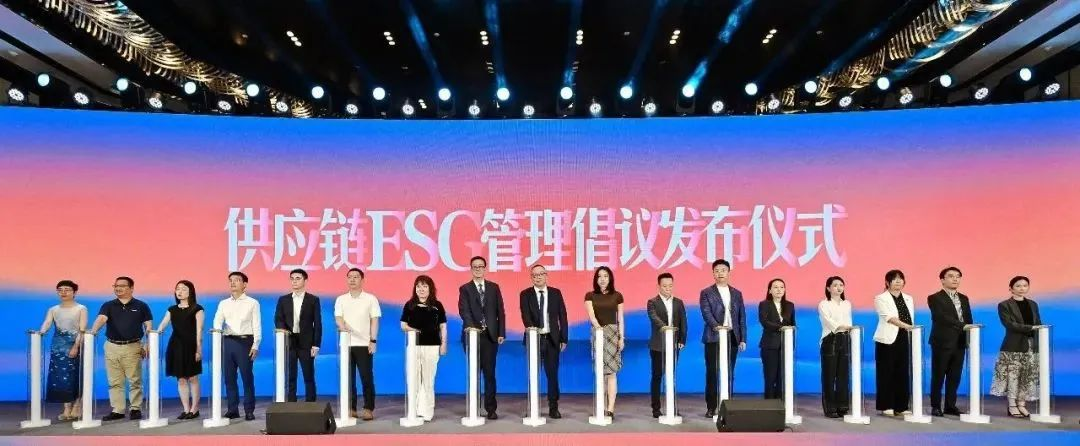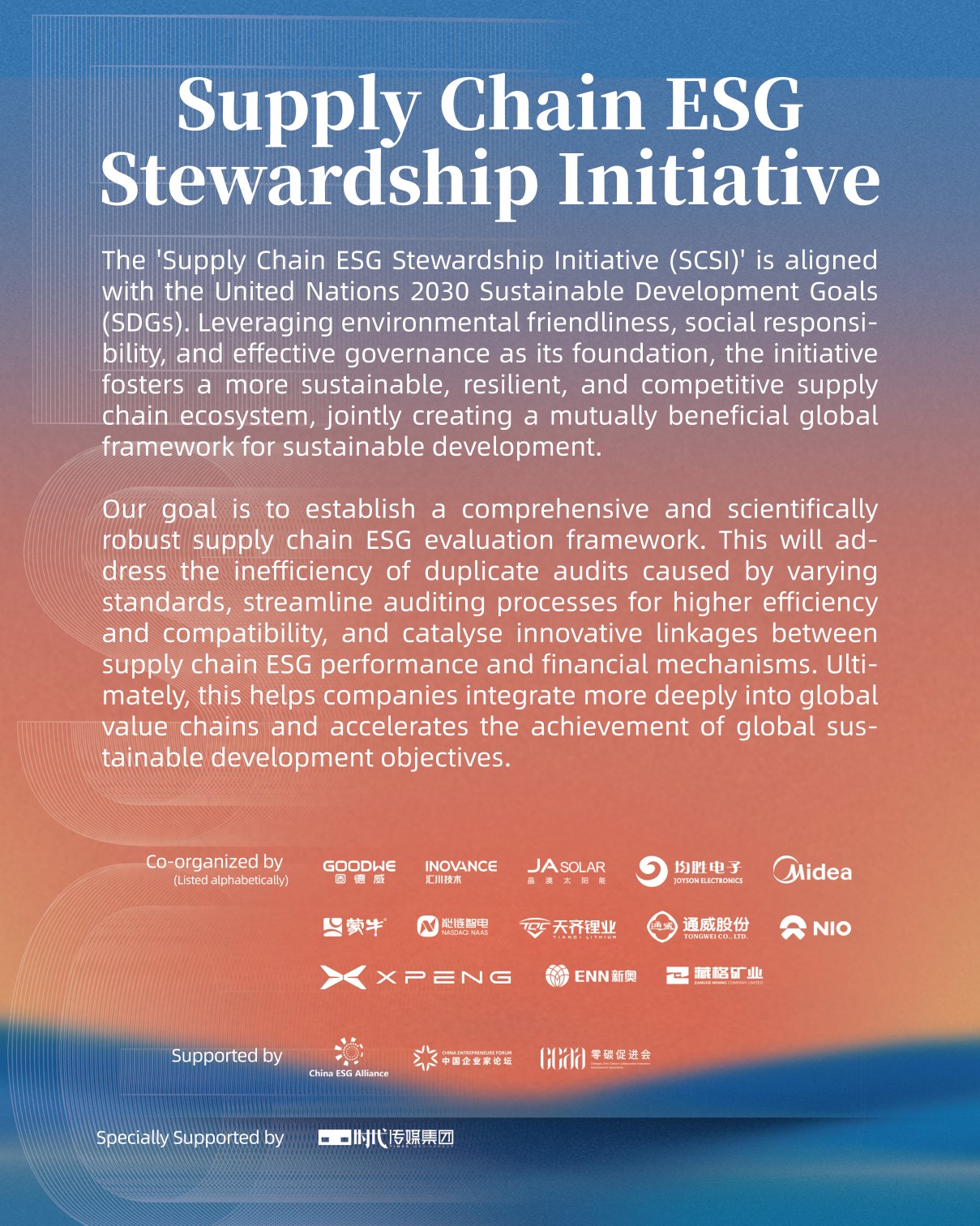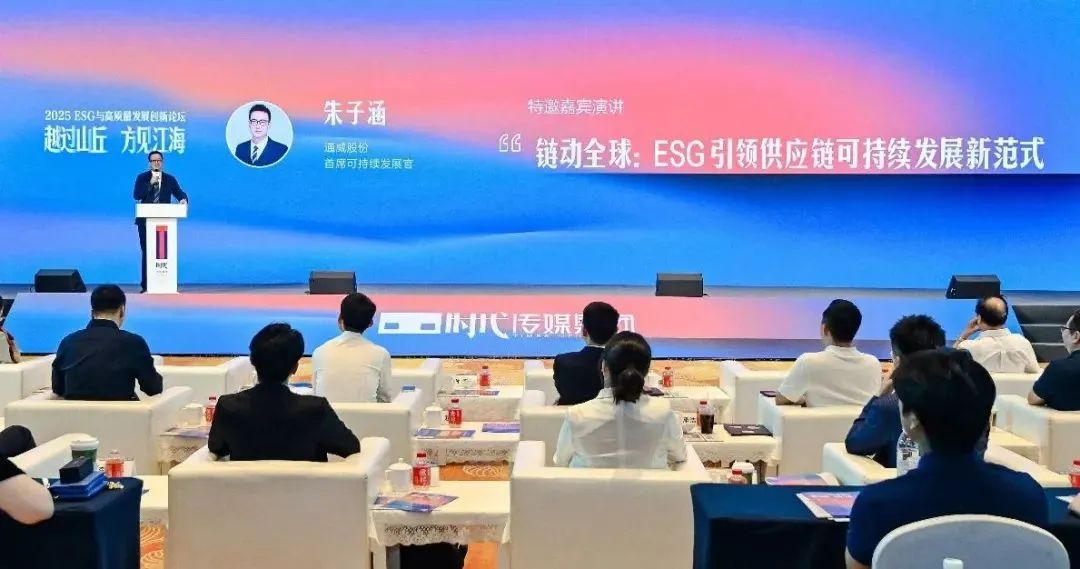Pioneering a New Model for Sustainable Development: Tongwei and 12 Industry Leaders Jointly Launch the Supply Chain ESG Stewardship Initiative
On June 13, the 2025 ESG and High-Quality Development Innovation Forum, themed “Beyond the Mountains, Embracing the Seas”, was held in Beijing, hosted by Guangdong Times Media Group. During the forum, Tongwei, together with 12 leading enterprises, officially launched the Supply Chain ESG Stewardship Initiative (SCSI).
Dr. Zhu Zihan, Chief Sustainability Officer of Tongwei Co., Ltd., attended the launch ceremony and delivered a keynote speech on behalf of the company.

A New Industry-Wide Commitment
The initiative responds to the United Nations 2030 Sustainable Development Goals, aiming to build a supply chain ecosystem that is sustainable, resilient, and competitive—anchored in environmental stewardship, social responsibility, and effective governance. It seeks to promote a new paradigm of global sustainable cooperation and shared success.

The goal of the initiative is to develop a scientific, inclusive, and harmonized ESG assessment standard for supply chains—addressing the inefficiencies caused by fragmented ESG audit systems, streamlining compliance processes, and fostering the integration of ESG performance with financial innovation. It also aims to support enterprises in embedding deeper into global value chains and accelerating progress toward global sustainability objectives.
Founding Members and Supporters
The 13 co-initiating companies (listed in alphabetical order by pinyin) include:
GoodWe, Inovance Technology, JA Solar, Joyson Electronics, Midea Group, Mengniu Group, Nengchain, Tianqi Lithium, Tongwei Co., NIO, XiaoPeng Motors, XinAo Group, and Zangge Mining.
Supporting organizations include the China ESG Alliance, Yabuli China Entrepreneurs Forum, and the Zero Carbon Promotion Association. The initiative is specially supported by Guangdong Times Media Group.
A Voice for Inclusive ESG Governance
In his keynote titled “Linking the World—ESG Leading the New Paradigm of Supply Chain Sustainability”, Dr. Zhu emphasized that ESG is not only a “health check” for corporate sustainability but also a new paradigm for advancing supply chain responsibility. He pointed out that many existing global ESG audit frameworks lack sufficient enterprise participation. He called on the industry to promote a multi-stakeholder governance model, where enterprises actively participate in shaping ESG standards.

A Timely Initiative for a Shifting Global Landscape
The three pillars of ESG—environment, social responsibility, and governance—are reshaping the global business landscape. ESG supply chain management plays a central role in this transformation. Earlier this year, during China’s “Two Sessions,” Mr. Liu Hanyuan, Deputy to the NPC, Vice Chairman of ACFIC, Board Chairman of Tongwei Group, formally proposed establishing a China-led ESG audit standard system for supply chains, calling for a framework that aligns with national realities while ensuring global influence. Against this backdrop, the Supply Chain ESG Stewardship Initiative was born.
Turning Vision into Action
At the implementation level, the initiative calls for building diverse partnerships, multi-stakeholder dialogue mechanisms, and promoting international mutual recognition of standards. It positions enterprises as the key actors in this process and proposes forming regular meetings, joint case studies, and collaborative research to develop a universally recognized ESG audit standard for supply chains.
Additionally, it emphasizes building a mechanism for transforming research outcomes into actionable standards and leveraging internationally trusted platforms to strengthen global recognition—further expanding corporate influence in the field of sustainable development.
Shared Perspectives from Industry Leaders
Representatives from the co-initiating companies expressed that by developing an ESG assessment system that balances scientific rigor with inclusivity, the industry can overcome the inefficiencies caused by fragmented standards, reshape streamlined and compliant audit processes, and integrate ESG performance with financial innovation. This will enable enterprises to more deeply engage in global value chains and accelerate the realization of global sustainability goals.